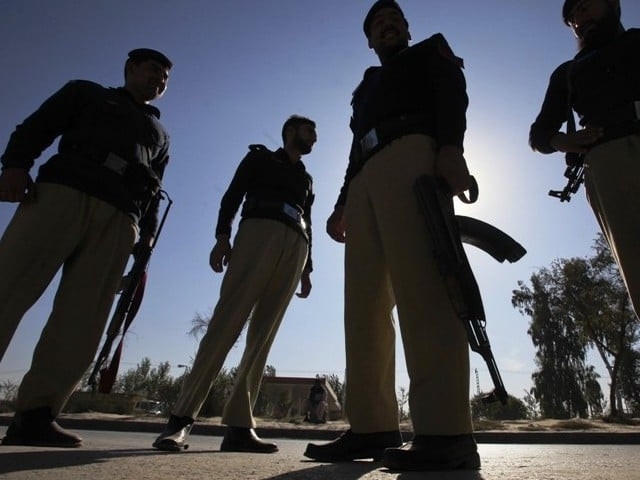Man with a mission: IGP Nasir Durrani on combating terrorism and the boon of consensus
Says counter terrorism department will now work independently and have more powers.

Says counter terrorism department will now work independently and have more powers. PHOTO: FILE.
Khyber-Pakhtunkhwa (K-P) Inspector General of Police (IGP) Nasir Khan Durrani said they are restructuring the Department of Counter Terrorism (DCT) which would function independently and also have the legal power to detain suspects for up to 90 days.
In an interview with The Express Tribune, Durrani said DCT had failed to make an impact earlier because its role was limited to intelligence gathering while police stations were the implementing bodies which did not promptly act upon intelligence reports.
He said the department would be revamped and be responsible for intelligence gathering, investigation and operations in terrorism cases. It would also have the legal power to detain any suspect for up to 90 days after taking permission from the home department and notifying an anti-terrorism court judge.
The department will also get a new name. “Its new name will be Counter Terrorism Department (CTD) and will have the liberty to act on its own.”
Durrani maintained the root causes of terrorism should be properly understood and then addressed accordingly in order to systematically eliminate the scourge. “There should be a national policy on ‘diagnostic approach basis’ as far as terrorism is concerned. All aspects of terrorism should be properly defined,” he argued, adding other Muslim countries like Malaysia could serve as a role model to this end.

“To fight militancy, many steps including a ban on issuing religious decrees against each other are required. But it is only possible when the state is involved in the entire affair.”
He said these steps were not possible without developing consensus and taking on board all stakeholders, because implementing the process through force would invite resistance.
Multiplicity of law
Nasir Khan Durrani said different laws in the Federally Administered Tribal Areas (Fata), Provincially Administered Tribal Areas (Pata), Frontier Regions (FRs) and settled districts resulted in multiplicity and caused confusion.
“There should be a task force to work on uniformity of law in this area at the federal level because it results in confusion when fixing responsibility,” he said, suggesting this should be done in phases.
“Before partition, there was no-man’s land between Fata and settled districts which was regularly patrolled by the Frontier Constabulary (FC) as the British Indian Administration wanted to deal with tribes in a different manner. After partition, we should have changed [the system], but we are still pursuing this policy.” This, he claimed, had created many problems.
“People from Fata can easily come to settled districts, but other people can’t go to the tribal belt easily. In addition, the FC’s role has been changed too and is being used for other purposes.”
Combating corruption
IGP Durrani said Hong Kong was a model state for corruption control and should be followed as an example. “There are three pillars of this system. The first is transparency, the second is reducing discretionary powers, and the third is across-the-board accountability in every department.”
He stressed no department should be spared from being held accountable, but some in Pakistan insist on internal accountability and being left on their own, which is against the Hong Kong model.
Talking about procurement of substandard arms and ammunition along with other combat gear in the past, Durrani said the war on terror was a high-intensity conflict and thus required quality equipment. He said a proper procedure will be followed while purchasing weapons for the force in the future.
The IGP lamented K-P police had no forensic lab to test explosives and since the element of scientific investigation was also missing in the country, the province was no exception in this regard. “We are trying to develop a culture of modern investigation and to establish our own lab. But till then, we will take help from other provinces.”
Durrani said their first priority was fighting terrorism and increasing accessibility of police officials to the general public. Secondly, they wanted to deal with kidnapping for ransom as well as extortion cases. He concluded the process of reforms in the police department would continue and they were carrying out a needs analysis in this regard.
Published in The Express Tribune, November 3rd, 2013.













COMMENTS
Comments are moderated and generally will be posted if they are on-topic and not abusive.
For more information, please see our Comments FAQ